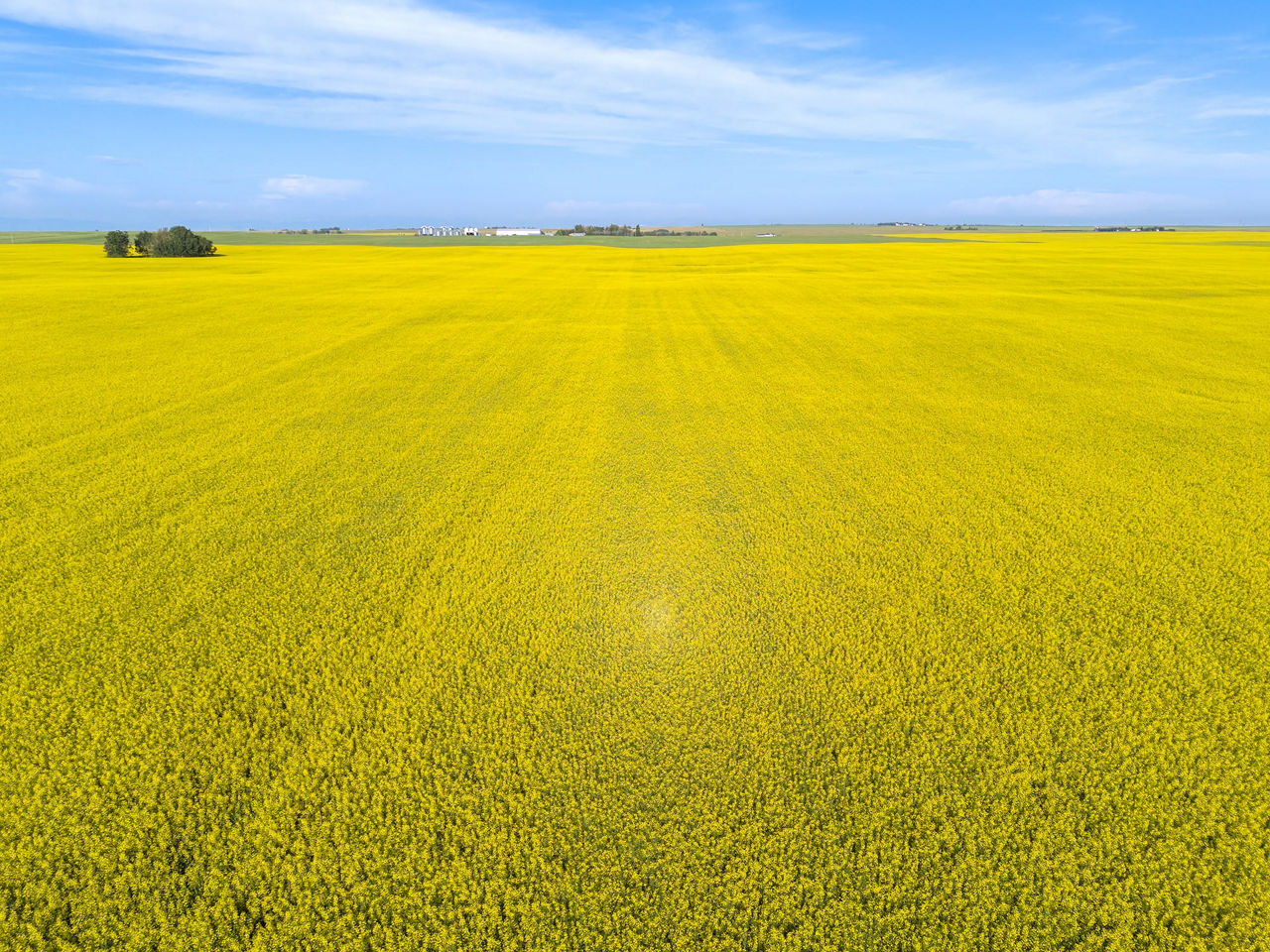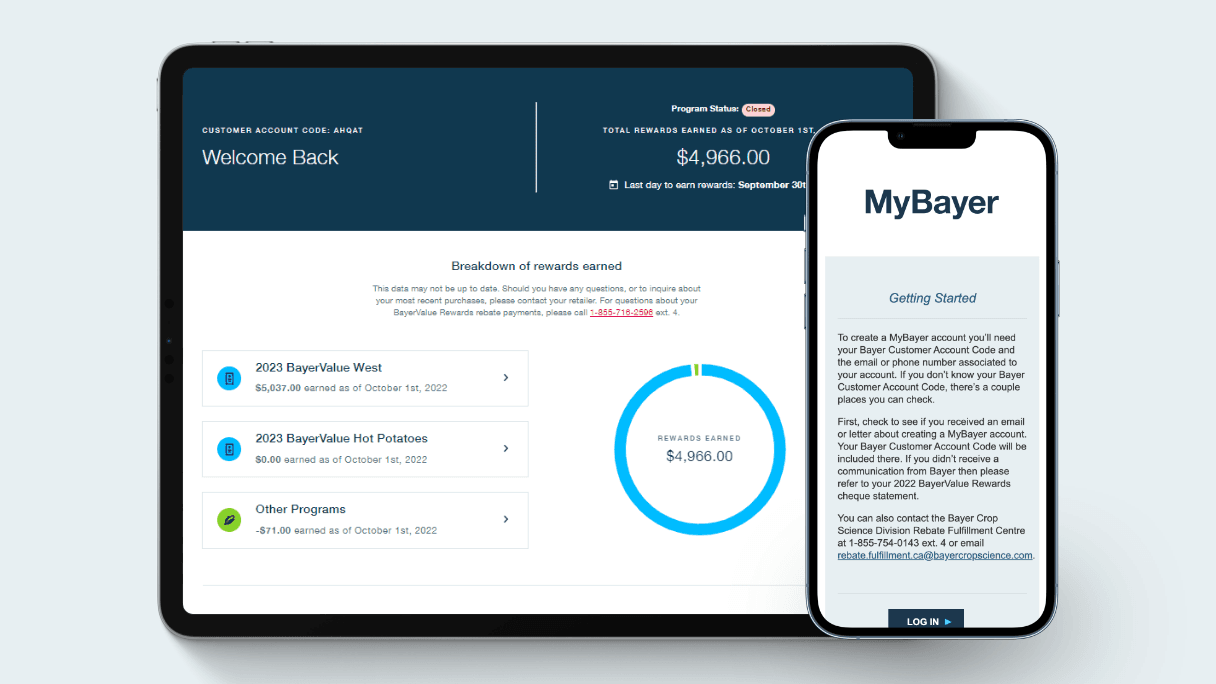High-quality, high-yielding canola starts with DEKALB hybrids
October 28, 2025

By Clare Stanfield
If Ryan Warawa has one message for his fellow canola growers, it would be to check their biases at the door when it comes to choosing canola hybrids.
Warawa farms 6,700 acres with his dad, son and nephew northeast of Mundare, AB. Together they grow canola, wheat, barley and oats, with canola the dominant crop. “We put about 35 to 40 per cent of the farm in canola,” he says. “We have a three to four year rotation and go 50-50 Roundup Ready and Liberty Link.” What doesn’t change is his choice of canola — it’s always Dekalb.
Warawa has been growing Dekalb for about 25 years, 15 of those in performance trials. He admits the early iterations of Dekalb canola hybrids struggled against the powerhouse of InVigor, which, at the time, really did change everything about what was possible with canola. “When Dekalb started, those were lean, rough years,” he says. “But, the reps said stick with us, it will get better.”
And it did. From his own experience growing Dekalb canola in performance trials as well as in his regular rotation, Warawa says the tables have turned for these hybrids and believes many of his fellow growers are missing out on high-yielding, high-quality canola because they may only remember those early, lean, rough years. Warawa encourages farmers to look again and see how today’s Dekalb stacks up against the rest. This is his story.
Substance over style
When you participate in performance trials, as Warawa does, you get to see the newest hybrids in real-world conditions before they are commercially available. He says what he has been seeing over 15 years of side-by-side trials is a continuous and remarkable improvement in Dekalb hybrids.
“We grew 75-44 and it was unreal,” he says of a now discontinued Roundup Ready Dekalb hybrid from over 10 years ago. In more recent years, Warawa trialed DK902TF and in 2025 he had the newest hybrid, DK904TF, in his strip trial plots. “Those two pushed the envelope yet again,” he says.
Warawa’s average yield has gone from 40 bushels per acre a few years ago to 45 bushels and beyond. “Now, if it doesn’t get to 50, I’m kind of surprised,” he says. “This year, we are getting 55 to 60 bushels per acre and it’s changing my thoughts on productivity. It looks poor from the road, but it sure yields.”
This schism between what his Dekalb hybrids look like in the field versus how they yield is, in Warawa’s opinion, a factor when farmers make hybrid choices. In his experience, InVigor hybrids seem to have plateaued when it comes to yield, but farmers see them as “tried and true” and won’t give Dekalb hybrids a go. And he thinks that’s a shame.
It’s not that Warawa is anti-InVigor — he still grows it on occasion — but he urges others to give Dekalb a shot because they could be pleasantly surprised, like his uncle was. “He was always anti-Dekalb,” says Warawa, adding that he now farms his uncle’s land since he retired. “We put Dekalb on it this year and he came to help with harvest and kept asking, ‘What is this?’ I told him it was Dekalb, and he didn’t believe it.”
Beyond yield
Of course, a canola hybrid is more than its yield potential alone. Seed treatment, herbicide and agronomic traits, including disease packages and harvestability, are all factors to consider when making hybrid selections. Across the board, Warawa says Dekalb hybrids give him wins.
“Being in a clubroot area, it’s important we have a good clubroot package,” says Warawa. He’s pleased with how Bayer canola breeders are constantly building the clubroot resistance in newer hybrids and how they are staying on top of blackleg pathotypes. Like most canola farmers these days, he straight cuts, and likes the pod shatter genetics as well.
The straw is one of those areas where he says Dekalb has really improved by leaps and bounds, saying it dries down faster and is easier to get through the combine at harvest. “I see the profitability — it’s less fuel, less wear and tear on my equipment,” he says. “I have a neighbour who was constantly dealing with plugged reels during harvest this year.” It speaks to his point about a crop that looks good versus one that is good. “Straw doesn’t make us a crop.”
But what keeps him coming back to Dekalb is the people. “I’ve formed some good relationships, but it comes down to trust,” says Warawa. “It seems to be one of the most progressive companies out there, and the product support is second to none.”
He knows there are Dekalb doubters but hopes that if he continues to talk about what these hybrids offer, and proves it in his fields, some of them will give it a chance. As he says: “I like to try to help other farmers.”
Read the full issue of Farm Forum here.
